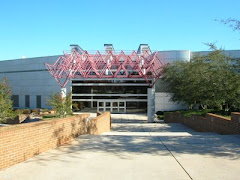It’s Week 9 of the fall semester, and by this point most
students have had at least one major test or assignment in each course. Some of those students are shocked by the
grades they receive on those assessments.
First time college students hear that “college is different from high
school”, “college is HARDER than high school”, and “you really have to study
all the time” but usually don’t make any changes to their previous behavior,
assuming that what worked in high school will continue to work in college. Maybe it won’t work QUITE as well, so
students believe that will translate into one letter grade below their usual
high school performance, and they’re okay with that. But it usually translates into two letter
grades worse, now it’s past mid-term, the “last date to withdraw” is rapidly
approaching, and there are limited opportunities to raise those D’s and F’s up
to the C’s and B’s that transfer to 4 year colleges and keep a LIFE
scholarship.
I see the looks of panic on those student’s faces as they
struggle to get back on track. There are
almost 2,000 students writing some kind of English research paper this
semester, and by now many have realized how incredibly important their grade on
that one assignment is going to be. They
approach the librarians warily, afraid, ashamed, or embarrassed to ask for help
locating sources for their papers, but they know they need assistance so they
overcome their reluctance. Other
students, however, see that their grades are slipping but are spinning their
wheels and trying to prove that they can do it all on their own and don’t ask
for help from any services the college provides, like the Tutoring Center or
Career Services. Or even worse, they
just put it in neutral and do…..nothing.
Faced with a setback, they give up and wait for the end of the
semester. Inevitably the D’s and F’s
from midterms become final grades and these students’ belief that “I’m just not
college material” is reinforced.
As an instructor in a Learning Community, I see how the
skills and behaviors taught in the communities can help students overcome this
common setback. Students often do NOT
see it, however, and tend to look at the content of the COL 105 class as
something that can only be used in that class.
Or worse, they consider it “busywork” and don’t bother to do it, as if
these instructors just loved grading their writing so much that they thought up
dozens of different ways to annoy students just for the heck of it. Because the writing assignments are not particularly
challenging academically, students decide to perform a version of ER “triage”
and attend to the most pressing issue first and cram for a Chemistry test. However, if they had taken the “time
management” portion of the Learning Community class and applied it, they’d be
able to do all of their assigned work and still pass the Chemistry test. The
transfer of concepts between one class (COL 103, for example) to another (CHM
110 here) is often one of the hardest things for new students to understand.

--by Sue Andrus, Instruction Librarian



.JPG)




